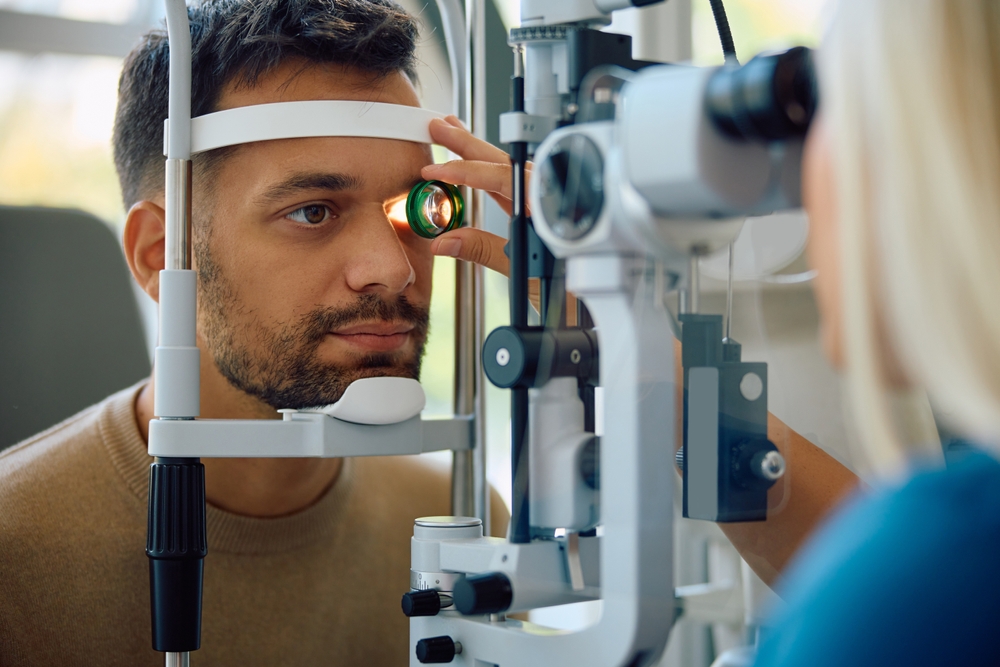
Your eyes are complex organs that require just as much care as the rest of your body. Understanding vision and ocular health is the first step in acknowledging the importance of routine eye exams. Your eyes not only allow you to see the world around you but also play a critical role in your overall well-being. Vision and ocular health encompass everything from your ability to see clearly at various distances to the health of your eye's internal structures.
How to Prepare for a Comprehensive Eye Exam
In preparation for your visit to the optometrist, there are several steps you can take to ensure the examination goes smoothly. First, gather any eyeglasses or contact lenses you're currently using, along with a list of any medications you are taking, as they can affect your vision.
Next, familiarize yourself with your family's eye health history. Certain eye conditions are hereditary, and knowing your family's health history can help your eye doctor better evaluate your risks. Additionally, be ready to discuss any vision problems or changes you have noticed, even if they seem minor. These details provide valuable insights for your eye care professional.
What Does a Comprehensive Eye Exam Involve?
Your optometrist will use various instruments, shine bright lights directly at your eyes, and request that you look through an array of lenses. Each test during the comprehensive eye exam serves a unique purpose in assessing your vision and ocular health.
The exam typically begins with a review of your personal and family medical history. Next, your visual acuity will be tested using a standardized eye chart. This measures how well you can see at various distances. Your eye doctor may also conduct tests to determine the clarity of your vision, the health of your eye's exterior and interior, and how well your eyes work together.
Additional tests may involve measuring your intraocular pressure, which can indicate glaucoma, and dilating your pupils to examine the retina and optic nerve. These tests are vital as they can uncover eye conditions that do not have early warning signs. The comprehensive eye exam is a critical tool that goes beyond just determining your need for glasses or contact lenses.
Detection of Common Conditions and Diseases through Routine Exams
Regular eye exams are not just about updating your prescription for glasses or contact lenses; they're a critical means of detecting common eye conditions and diseases. By partaking in routine exams, you are allowing your eye care professional to catch issues that could potentially go unnoticed until they become more severe.
For example, conditions such as glaucoma, diabetic retinopathy, and age-related macular degeneration may not exhibit symptoms in the early stages. Yet, these conditions can lead to serious vision impairment or even blindness if left undetected and untreated. During a routine eye exam, your eye doctor can identify these diseases with the help of specialized equipment and tests.
Not only can these conditions affect your vision, but they can also provide clues about your overall health. Eye exams can reveal signs of chronic diseases such as diabetes and high blood pressure. By detecting these signs early on, your eye doctor can alert you and your primary care physician to potential health issues before they become serious.
The Importance of Early Detection and Treatment
Early detection allows for a broader range of treatment options and a better chance of slowing or reversing the progression of eye disease. This proactive approach to ocular health can preserve your vision and, consequently, your quality of life.
For instance, early detection of glaucoma is crucial since the damage it causes to the optic nerve is irreversible. With timely diagnosis and treatment, however, the progression of the disease can often be halted. Similarly, early signs of conditions like diabetic retinopathy can be managed effectively with proper medical intervention and lifestyle changes, thus preventing severe vision loss.
The significance of early treatment also extends to common refractive errors such as myopia, hyperopia, and astigmatism. By correcting these issues early, you can avoid unnecessary strain on your eyes, which can lead to headaches, fatigue, and other problems. Routine eye exams are the key to maintaining your ocular health and catching issues before they escalate into more significant problems.
Making Eye Exams a Routine Part of Your Health Check-Up
Making eye exams a routine part of your health check-up is a wise investment in your vision and ocular health. By doing so, you can enjoy the benefits of clear vision, detect any issues early on, and maintain your overall health.
Prioritize your vision and eye health by scheduling your next eye exam today, visit Mayo Family Eye Care at our office in Exeter, New Hampshire. Call (603)778-7145 to book an appointment today.









